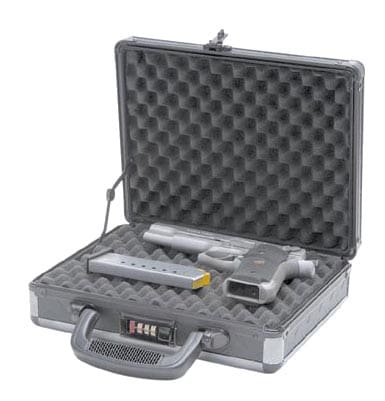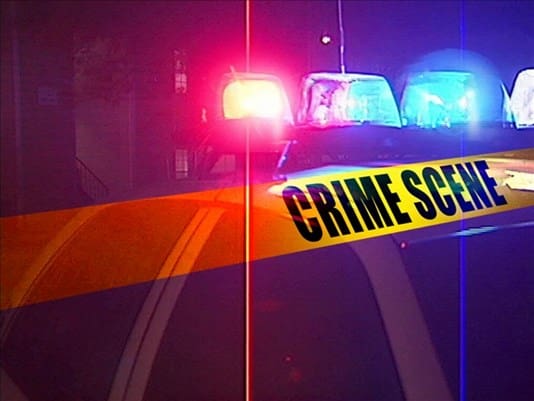It is my firm belief that whoever is in possession of a firearm “owns” that gun. It doesn’t matter who owns the gun legally. If you have it, it’s yours. The rule applies the moment someone hands you a firearm at a gun store, gun range, a field in the middle of nowhere, anywhere, everywhere. It also applies to anyone to whom you hand a gun. (Which is why I believe you should never loan a gun to anyone.) When Danny Gravois checked his .45-caliber semi-automatic pistol onto a Continental Airlines flight at Denver International Airport on July 26th, Continental Airlines owned the gun. Gravois followed all the rules. Continental lost the gun.
This is the same Continental Airlines that sells four types of gun cases at the airline counter and two locks (only one of which is TSA approved).
According to thedenverchannel.com, Continental Airlines has launched an internal investigation (ya think?). But they aren’t commenting on the missing gun. Shame. A little reassurance—we’re taking all necessary steps to recover the lost weapon with the help of appropriate law enforcement agencies—would have gone a long way.
Meanwhile, the TSA isn’t taking ownership of this one:
The Transportation Security Administration wrote in a statement “once the firearm is screened by TSA, in front of the customer, it’s out of our hands and in the hands of the airline.”
.45 owner Gravois is understandably distraught. So much so he’s talking a bunch of nonsense:
Gravois is convinced the gun was stolen. He just hopes it doesn’t end up in the wrong hands now.
“I would very upset to find my weapon pointed back at me on a plane or GOD forbid someone use it to take down a plane,” Gravois said.
Hello? The gun was checked luggage. Although we’ve seen plenty of movies where bad guys get into the luggage compartment to recover plane-killing weapons, it’s ain’t gonna happen dot com.
Definitely not on a future Gravois flight. What are the odds? If someone wants to take down a plane with a gun, there are several million easily accessible illegal guns in America that don’t merit their own metal case.
In any case (so to speak), this story underlines the fact that a responsible gun owner shouldn’t hand his weapon to a company that isn’t responsible enough to safely maintain its transferred ownership.
In other words, whenever you’re about to surrender your weapon to anyone—be they gunsmith, airline, FFL dealer, gun range or (please no) friend—-switch on your safety radar. Ask what security precautions they’re going to take with your gun. If it sounds or looks inadequate, it is.
By the same token, if a recent incident leads you to believe the new owner might drop the ballistic ball, bail. Continental Airlines lost a gun. Oh, wait they also lost one in Houston on the 7th of this month. And those are the ones we know about. You have been notified.





and I am sure they still charged him the $25 baggage fee!
It’s been many years since I flew with a gun (close to 20, I think) so I’m not sure how things have changed. Last time I flew with a handgun, the requirement was that the gun be unloaded (duh!), that it be inside a locked case, and that case had to be inside another locked bag. Interestingly, once I filled out the affidavit that said the gun was unloaded, the ticket agent affixed a tag to the gun case but not to the outer bag that the gun was in. When I asked why this was, the ticket agent said that the outer bag should not identify the fact that there was a gun inside.
So, it’s pretty obvious that even back then, airlines knew that the most likely thieves were people in their own employ. Which sort of makes one wonder: wouldn’t it be better to hire honest baggage handlers than to make gun owners jump through hoops? After all, guns are not the only valuable cargo that airlines handle.
If the airlines can’t trust their own employees, why should we, the flying public, trust the airlines?
Lesson learned here, I think is that if you absolutely need a gun in another location, having it shipped through a common carrier and transferred through an FFL might be more prudent.
Comments are closed.